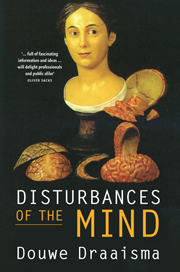Book contents
- Frontmatter
- Contents
- Introduction
- 1 Towards dusk the images appear
- 2 A tormenting round of tremors
- 3 Phineas Gage’s posthumous stroll
- 4 The Celestine prophesy
- 5 Sparks from a Leyden jar
- 6 Siberian brandy
- 7 Go to hell, idiot! Gilles de la Tourette syndrome
- 8 A labyrinth of tangles
- 9 The Mercator of neurology
- 10 The headquarters of madness
- 11 A cup of tea for the doppelgänger
- 12 Little professors
- 13 The Cardan suspension of science
- Index
- References
5 - Sparks from a Leyden jar
Jackson’s epilepsy
Published online by Cambridge University Press: 05 March 2014
- Frontmatter
- Contents
- Introduction
- 1 Towards dusk the images appear
- 2 A tormenting round of tremors
- 3 Phineas Gage’s posthumous stroll
- 4 The Celestine prophesy
- 5 Sparks from a Leyden jar
- 6 Siberian brandy
- 7 Go to hell, idiot! Gilles de la Tourette syndrome
- 8 A labyrinth of tangles
- 9 The Mercator of neurology
- 10 The headquarters of madness
- 11 A cup of tea for the doppelgänger
- 12 Little professors
- 13 The Cardan suspension of science
- Index
- References
Summary
It would perhaps be an exaggeration to say that John Hughlings Jackson regarded constitutional law as a branch of neurology, but it is not far off the mark. In his version of the human brain, the balance of power between the higher and lower parts mirrored the public order which reigns in a state with a powerful central authority. The government has its seat in the convolutions of the frontal lobes, the part of our nervous system that thinks, takes decisions, and monitors the activities of the lower parts of the brain. As long as the upper parts are able to exert their authority undisturbed, we remain unaware of the activities of the lower parts. When that order is undermined, however, the consequences are disastrous. In an epileptic seizure, for example, the loss of control causes the disinhibition of lower brain parts, resulting in spasms and convulsions. Jackson saw epilepsy as the neurological equivalent of rebellion and anarchy.
Jackson was a Victorian, and very much so. In an article dating from 1884, he compared the upper parts of the brain to the twenty-four admirals who constituted the Navy Board, presiding over a fleet which helped to maintain control over the British Empire. An epileptic seizure, he explained, is like an order given by an admiral who has suddenly lost his mind: chaos breaks out among his subordinates. Thinking in terms of hierarchies was second nature to Jackson, and for him it was self-evident that the hierarchy in our brain was evolutionary in origin. In 1859, the same year that Jackson moved permanently to London, Darwin’s On the Origin of Species appeared, and the philosopher Herbert Spencer published his theory that higher and more complex brain structures evolve from lower structures, exercising supervision over them. In a healthy brain, order and authority reign.
- Type
- Chapter
- Information
- Disturbances of the Mind , pp. 126 - 146Publisher: Cambridge University PressPrint publication year: 2009



